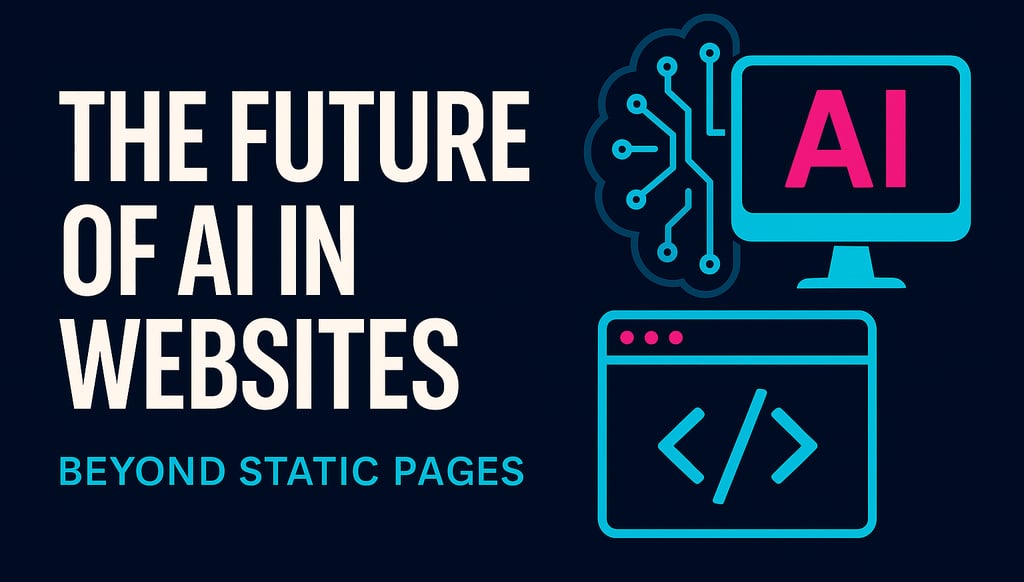The Future of AI in Websites: Beyond Static Pages
Websites are no longer static brochures.


Transforming Static to Dynamic Experiences
In today’s digital landscape, websites have evolved significantly from mere static brochures to dynamic platforms that provide engaging user experiences. The rise of artificial intelligence (AI) is revolutionizing how we interact with online content, allowing websites to adapt in real-time to individual user needs. As we delve into the future of AI in websites, it is essential to understand how these technologies are reshaping digital experiences.
Dynamic Personalization: A New Era of User Interaction
The traditional approach of a one-size-fits-all website is becoming outdated. AI-driven dynamic personalization shifts this paradigm, enabling websites to customize their layouts, content, and product recommendations based on individual visitor behaviors, intents, and preferences. This dynamic approach improves user satisfaction and engagement, as users find content relevant to their interests without any hassle.
For instance, e-commerce websites increasingly utilize AI algorithms to analyze user behavior and tailor shopping experiences. When a visitor logs onto an e-commerce site, personalized product suggestions based on previous interactions appear, thus paving the way for a more intuitive shopping experience. This real-time adaptation means users are more likely to remain on the site longer, explore different products, and complete purchases.
Conversational Interfaces: Guiding Users Effectively
Another remarkable advancement in the world of websites is the integration of conversational interfaces. Imagine a future where AI chat widgets evolve into full-fledged voice-based navigation assistants. These digital concierges will guide users through their online journeys, providing answers to their queries in a conversational format.
As voice recognition technology improves, users may find it more convenient to navigate websites using voice commands rather than traditional methods like typing. This innovation would not only enhance accessibility for diverse user groups but also streamline the browsing experience. In this ever-changing digital ecosystem, AI-driven conversational interfaces will surely become indispensable tools for facilitating user interactions.
Generative Design: Redefining Creativity
Generative design is another fascinating development fueled by AI. By employing algorithms to generate layout and copy options, websites can leverage creativity at an unprecedented scale. These systems can produce a multitude of variations, enabling designers and marketers to choose the most engaging options for their audience.
This approach allows for greater experimentation and optimization, as businesses can analyze data-driven insights to determine which designs resonate most with users. As AI continues to advance, the role of generative design will be crucial in creating visually appealing and highly engaging websites that stand out in a crowded market.
In conclusion, the future of AI in websites is bright and filled with potential. By embracing the dynamic personalization, conversational interfaces, and generative design, we can transcend the limitations of static web pages. As these technologies continue to evolve, websites will become living digital experiences, offering immersive interactions and customized content that align seamlessly with user needs.
